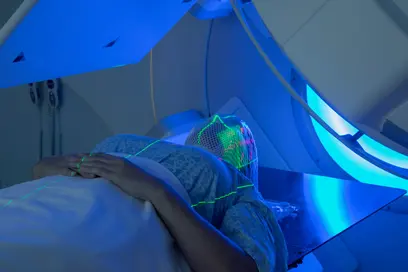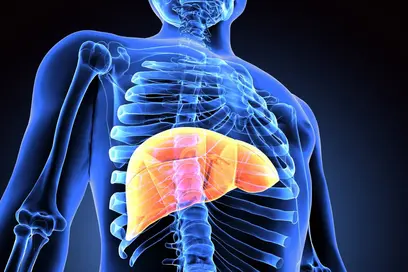Cancer is often caused by defects in the information pathways that regulate cell division. Dr. Michael Boutros, head of the Boveri group “Signaling and Functional Genomics" of the German Cancer Research Center (Deutsches Krebsforschungszentrum, DKFZ), jointly with a team headed by Dr. Martin Zeidler, Department of Molecular Developmental Biology of the Max Planck Institute for Biophysical Chemistry in Göttingen, Germany, has investigated a signaling pathway called JAK/STAT, which plays an important role in leukemias and lymphomas. In doing so, they found a number of previously unknown genes and proteins that may become interesting for cancer treatment and diagnosis. The investigators were using the RNA interference method, which is the first to allow simultaneus investigation of all signaling cascade components across the whole genome. Their results will be published in the latest issue of the journal Nature* of August 11, 2005.
Using the RNA interference method, the researchers have discovered genes coding for four known and 86 uncharacterized proteins. These include several genes that play a role in the development of leukemias. The researchers synthesized about 20,000 artificial RNA copies that can be used to block over 90 percent of gene activity in Drosophila. Thereby, they searched specifically for genes that positively or negatively regulate components of the JAK/STAT pathway. Since this method does not yet work genomewide in human cells, the scientists studied the genome of the fruit fly Drosophila. The JAK/STAT signaling pathway has been highly conserved in the evolution from fruit fly to man. Therefore, signaling cascades in fruit fly and man have similar structures. In a next step, Boutros and his team are planning to characterize some of the newly identified components molecular-biologically and biochemically in order to investigate their function in human cells.
JAK is short for “Janus Tyrosine Kinase"; JAKs are enzymes that switch on transcription factors in the nucleus, which, in turn, regulate the activity of genes. STAT (signal transducer and activator of transcription) is a transcription factor that influences genes which regulate cell division or differentiation.
Both collaboration partners are supported by funds from the Emmy Noether Program for young scientists of the Deutsche Forschungsgemeinschaft (DFG).
*Patrick Müller, David Kuttenkeuler, Viola Gesellchen, Martin P. Zeidler and Michael Boutros: “Identification of novel JAK/STAT signalling components by genome-wide RNAi“, Nature, August 11, 2005
About DKFZ
With more than 3,000 employees, the German Cancer Research Center (Deutsches Krebsforschungszentrum, DKFZ) is Germany’s largest biomedical research institute. DKFZ scientists identify cancer risk factors, investigate how cancer progresses and develop new cancer prevention strategies. They are also developing new methods to diagnose tumors more precisely and treat cancer patients more successfully. The DKFZ's Cancer Information Service (KID) provides patients, interested citizens and experts with individual answers to questions relating to cancer.
To transfer promising approaches from cancer research to the clinic and thus improve the prognosis of cancer patients, the DKFZ cooperates with excellent research institutions and university hospitals throughout Germany:
- National Center for Tumor Diseases (NCT, 6 sites)
- German Cancer Consortium (DKTK, 8 sites)
- Hopp Children's Cancer Center (KiTZ) Heidelberg
- Helmholtz Institute for Translational Oncology (HI-TRON Mainz) - A Helmholtz Institute of the DKFZ
- DKFZ-Hector Cancer Institute at the University Medical Center Mannheim
- National Cancer Prevention Center (jointly with German Cancer Aid)
The DKFZ is 90 percent financed by the Federal Ministry of Research, Technology and Space and 10 percent by the state of Baden-Württemberg. The DKFZ is a member of the Helmholtz Association of German Research Centers.


